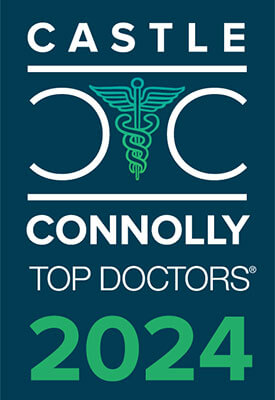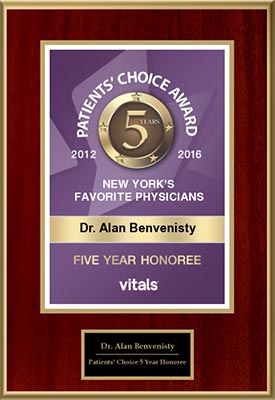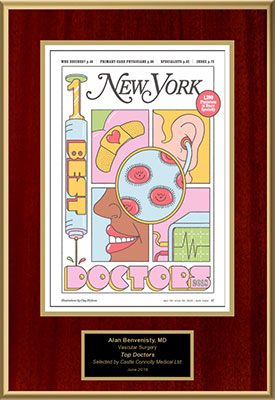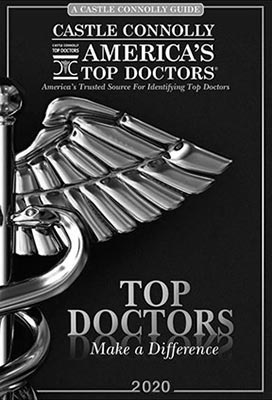Angina
Though not a disease, angina is chest pain or discomfort with an assortment of symptoms that many assume are related to something else. Yet, angina is an important symptom of an underlying condition known as coronary heart disease. Simply put, this occurs when the heart muscle doesn’t get the amount of blood that it needs, and this is typically a result of the narrowing or blockage of one of the arteries surrounding the heart. While classic angina symptoms include uncomfortable pressure, heaviness or a squeezing pain in the chest, individuals can also experience discomfort in the neck, jaw, shoulder, back or arm.
To better understand, consider the types of angina: stable angina (angina pectoris), unstable angina, microvascular angina and variant (Prinzmetal’s) angina. For the most part, stable angina occurs in episodes. For instance, it may occur when the heart is working harder, such as during physical activity. In addition, it may be triggered by stress, hot or cold temperatures, heavy meals or smoking. Stable angina may feel like gas or indigestion, and discomfort may spread to the arms and back. While this type of angina is easily relieved through rest or nitroglycerin, it’s important to track symptoms, as it may develop into unstable angina.
Unstable angina causes sudden, unexpected pain and can occur while resting. Notably, the most common cause is atherosclerosis or narrowing of the coronary arteries. Whether arteries are partially or fully blocked, unstable angina is a serious condition and can lead to a heart attack.
Though rare, variant angina (also known as Prinzmetal’s angina) is caused by a spasm in the coronary arteries. A variant angina attack usually occurs between midnight and early morning hours, while individuals are at rest or sleeping. The attacks are reportedly severe and may come in cycles. Cold weather, stress, certain medications, smoking and illicit drug use may contribute to variant angina.
Lasting longer and causing more severe pain, microvascular angina is believed to be a symptom of coronary microvascular disease (MVD). This disease affects the smallest blood vessels of the coronary arteries. Similar to variant angina, microvascular angina results from spasms within the walls of the small arterial vessels, resulting in decreased blood flow.
To determine the causes and/or types of angina, doctors may perform the following tests: electrocardiogram (ECG), stress test, coronary catheterization, electron beam computed tomography (EBCT) or cardiovascular magnetic resonance imaging (MRI).
Treatment Options for Angina
The treatment approach in regards to angina pain will primarily focus on treating the underlying heart disease. Depending on the extent of an individual’s angina pain and any coronary disease detected, initial treatment may include making lifestyle changes and incorporating relaxation techniques. Medications such as nitroglycerin, beta-blockers, calcium-channel blockers, statins and ranolazine may also be suggested. Even so, if individuals have unstable angina, other procedures may be necessary to improve blood flow. Consider the following:
- Coronary artery bypass graft surgery
- Angioplasty (with stent placement)
- Transmyocardial laser levascularization or TMR (usually performed along with coronary artery bypass)
While still under study, a variety of supplements and herbs have been shown to reduce the chances of heart disease as well as angina. Yet, it’s important to discuss these with your vascular specialist in order to determine the correct dosage for you. Supplements include: L-carnitine, Coenzyme Q10 (CoQ10), Arginine, and Magnesium. Herbs include: Hawthorn (Crataegus Monogyna), Kudzu (Pueria Lobota), Terminalia Arjuna, and Suxiao Jiuxin.
Committed to his philosophy of treating patients as individuals, Dr. Alan I. Benvenisty, MD is a distinguished vascular and endovascular surgeon in New York City with an appreciation for conservative, non-invasive treatment of vascular disease. Patients benefit from the personalized care they receive by Dr. Benvenisty, which is why many seek his expertise for their vascular concerns. If you or a loved one is experiencing pain and increasing discomfort from angina, contact Dr. Benvenisty at his Amsterdam Avenue office today.







